
Associate Professor of Aesthetics at the Moholy-Nagy University of Art and Design (MOME) in Budapest, Bálint Veres offers a philosophical account of the theatrical and opera arts, as well as Richard Shusterman's recent conceptualization of art as a form of dramatization.

Professor David Roesner, of the Ludwig Maximilian University of Munich, ponders the meaning of theatre, music, theatricality and performativity in relation to Heiner Goebbels' 1996 production Black on White.
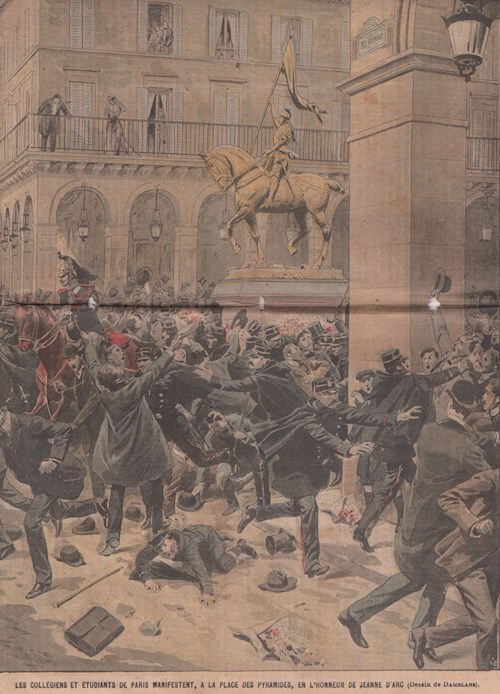
Warwick University's Jessica Wardhaugh, Associate Professor in French Studies, kick-starts our series of articles on theatricality by identifying some of the tensions encapsulated by the term.
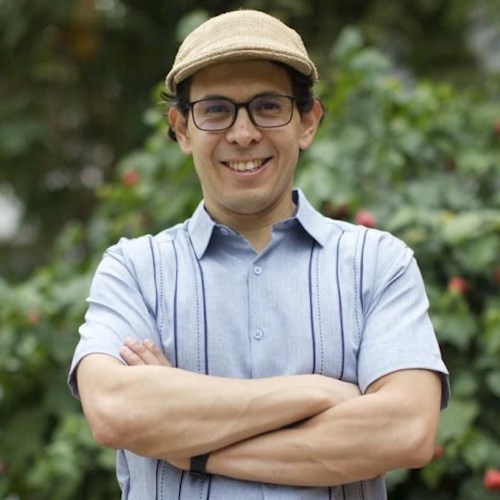
Sergio Ospina Romero, incoming Assistant Professor at the Jacobs School of Music at Indiana University, Bloomington, reflects critically on the principal scholarly narratives about the creation and dissemination of jazz, its U.S. appropriation and its resonance with local Caribbean musical styles.

Musicologist Carol A. Hess explores the music of Venezuelan-born composer Ricardo Lorenz, with examples ranging from concerti for viola, and for maracas, to the reimagining of a song by Stephen Sondheim.
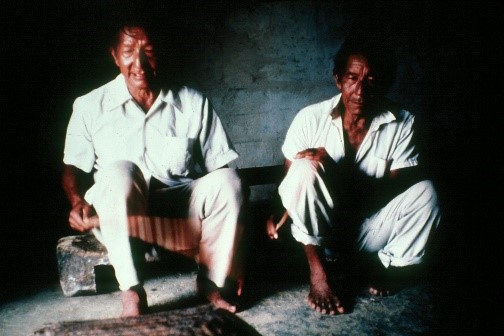
Emeritus Professor of Anthropology at Southern Illinois University, Carbondale, Jonathan D. Hill explores the significance of singing, chanting and instrumental music to indigenous peoples in Amazonia, documenting some of scholarly activities that have sought to capture and further understand ritual activities in the region.

Following the recent publication of his book, The Invention of Latin American Music (Oxford University Press, 2020), Pablo Palomino explores the significance of travel and migration to our understanding of the 'Latin American' descriptor.
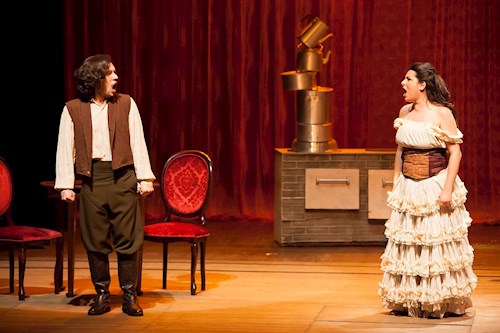
Mahima Macchione reflects on an operatic success story of the modern age and the influence of impresario Gehad Hajar.
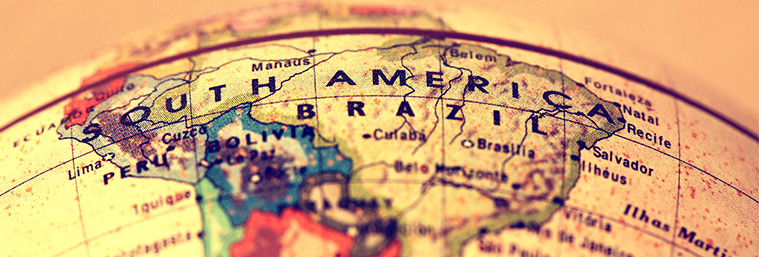
Distinguished Professor of Musicology at the University of California, Riverside, Walter Aaron Clark explores the complexities of identity – as related to geography, history, and culture – within Latin American music.

Jack Sullivan, Professor of English at Rider University, describes a kind of musical-literary foreplay in which critics and audiences regularly engage.

Award-winning musicologist Ralph P. Locke (Emeritus Professor, Eastman School of Music) explores the art of the music review, comparing two of his own commentaries on performances of Jacques Offenbach’s operetta La Périchole.

Martin Stokes, Professor of Music at King's College London, ponders the collapse of public and private: from the bed of Hugh Heffner's Playboy Mansion to the makeshift office space many academics have found at home.

Musical culture and media specialist David Hesmondhalgh contemplates whether sociological models might help define and develop musicology's public outreach.

Emeritus Professor of History and Visual Culture at Durham University, Ludmilla Jordanova contemplates the 'public' in 'public musicology': what it means, to whom it refers, and how it might prompt attempts to demystify the culture industries and economies that record, broadcast and further disseminate the music we enjoy.

A specialist in music history pedagogy, Mary Natvig reflects on the events of recent weeks, asking how and why musicologists can respond.

Musicologist and dance historian Samuel N. Dorf reflects on the role or purpose of the pre-performance lecture, especially at a time when tragedy extends outside the theatre into the local community.

Opera and film specialist Brooke McCorkle Okazaki contemplates ways in which film music, in particular, can provide a useful medium for scholars seeking to engage with the general public.

While questioning scholarly habits of history-writing (and the assumptions that underpin them), musicologist Kate Guthrie reflects on similarities between life during virus lockdown and that which characterized World War Two Britain.

Musicologist Deirdre Loughridge reflects on the uses and functions of music in times of pestilential crisis: not only nowadays but during the Renaissance when recurrent plague swept across Europe.

Opera scholar Emily Richmond Pollock discusses her latest research into the 'festivalization' of opera - and, indeed, of culture itself - in recent years.

Baylor University Assistant Professor Monique M. Ingalls recounts the efflorescence of gospel music, particularly in Great Britain, proposing two contrasting modes of ritual behaviour associated with gospel traditions.

Design pioneer Alban Bassuet recalls the multi-sensory relations between sound, space, people and instruments within the musical venues he has collaborated on.

How can we categorize the functions of music in the video game, arguably one of this century's most popular and interconnected ritual spaces? Tim Summers, Lecturer at Royal Holloway and specialist in music and popular culture, explores.

Ethnomusicologist Rachel Adelstein describes the multifaith institution known as Genesis (Ann Arbor) and its various ritual functions.

Film-music specialist Ben Winters addresses that old chestnut: the contribution made by music to cinematic realism, narration and the delineation of diegetic space.

Pianist-composer Jocelyn Ho explores how to revive - and re-embody - the classical concert, while commenting on contemporary trends in performance practice.

Are today's new artistic spaces - their design, function and in-built agenda - really all that new? Philosopher Jeremy Reid contemplates the history and politics that inform Dorothea von Hantelmann's latest manifesto and its architectural embodiment.

After visiting NYC's latest multi-purpose arts venue, Callum Blackmore reflects on a musicology that is sensitive to space, ritual, privilege and engagement.

Might spoken language be an evolutionary error, music our mother tongue? Musician and media professor Aram Sinnreich searches for the commonalities among rituals and their spatial inheritance.

Literary and Cultural Studies Professor Kathy M. Newman presents her thoughts on the future of listening, exploring the mobility of sound, music and, especially, the human voice.

Influenced by the 'Feldenkrais Method', Robert Sholl promotes listening not only with the ears, but with our multi-sensory awareness.

Hearing the sounds of Nature and its animal inhabitants is quite different from anything we can manufacture ourselves, argues behavioural ecologist Peter Wrege.

Brown University Professor David Wills journeys from the bells of Edgar Allan Poe, through Mahler's 5th and David Bowie's Hunky Dory, to the rustle of poplars in New Zealand - all while on a train, with no headphones or earbuds.

Contemplating our present-day musical culture of 'post-fidelity', musicologist Mark Katz weighs up what we have lost - and what we might want to regain.

Performer-scholar John Butt ponders the ways we experience music with our minds, memories and physical movements.

Music critic Michael Sinclair reminds us of the obvious exception: how to experience music when your hearing is impaired.

Media specialist Robert Prey reflects on the implications of streaming services not only on current and future cultures of listening, but on the agency and autonomy of practicing musicians.

Karen Collins, an expert in human-machine interaction, weaves a futuristic narrative of unforeseen consequence.

How did listeners conceptualize their future from mid-nineteenth-century America, recently visited by Swedish singer Jenny Lind and buzzing with concerts, clubs and musical paraphernalia? Professor Daniel Cavicchi explores.

The most unwanted song in the world? Music techology specialist Jason Freeman explains why this 'maniacal assemblage' is one of his desert-island discs.

Popular music specialist Adam Harper inquires after the ways listening has changed over the last few decades.

Media archeologist Melle Jan Kromhout explores the impact of technology on contemporary modes of listening and on the music mediated by our posthuman ears.

To musicologist David Yearsley, the future of listening might best be considered as an eternal present, with J. S.Bach a useful model.

Conductor Tianyi Lu, a recent Dudamel Fellow with the Los Angeles Philharmonic, gives her account of how we might widen audience participation with 'classical' music. And she's not afraid to use her voice.

What has this platform to do with contemporary art, specifically an exhibition on global migration? Editor Davinia Caddy reflects on the creation and development of Naxos's latest online venture.

At a time when nations are closing their borders and quarantined Italians sing in solidarity across balconies, Davinia Caddy introduces a series of articles on the topic of music, sound and space, with special focus on the space of the lounge room and the television within it.
Journalist, critic and memoirist, Thomas Larson explores his affinity for music and language and the ambiguity that results when the two artistic expressions mix.
Composer Michael Norris (Associate Professor at Victoria University of Wellington) describes the creative inspiration behind his 2019 work Rerenga, exploring the influence of native New Zealand music and culture.
Emeritus Professor Peter Walls (Victoria University of Wellington), former CEO of the New Zealand Symphony Orchestra, explores the nature and meaning of orchestral concert programming and the challenges of establishing an equilibrium among competing priorities.
Philip Auslander, Professor of Performance Studies and Popular Musicology at Georgia Institute of Technology, offers a new and different account of John Cage's infamous work 4'33", drawing on his recent study of "musical persona".